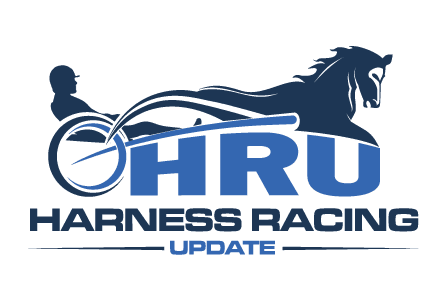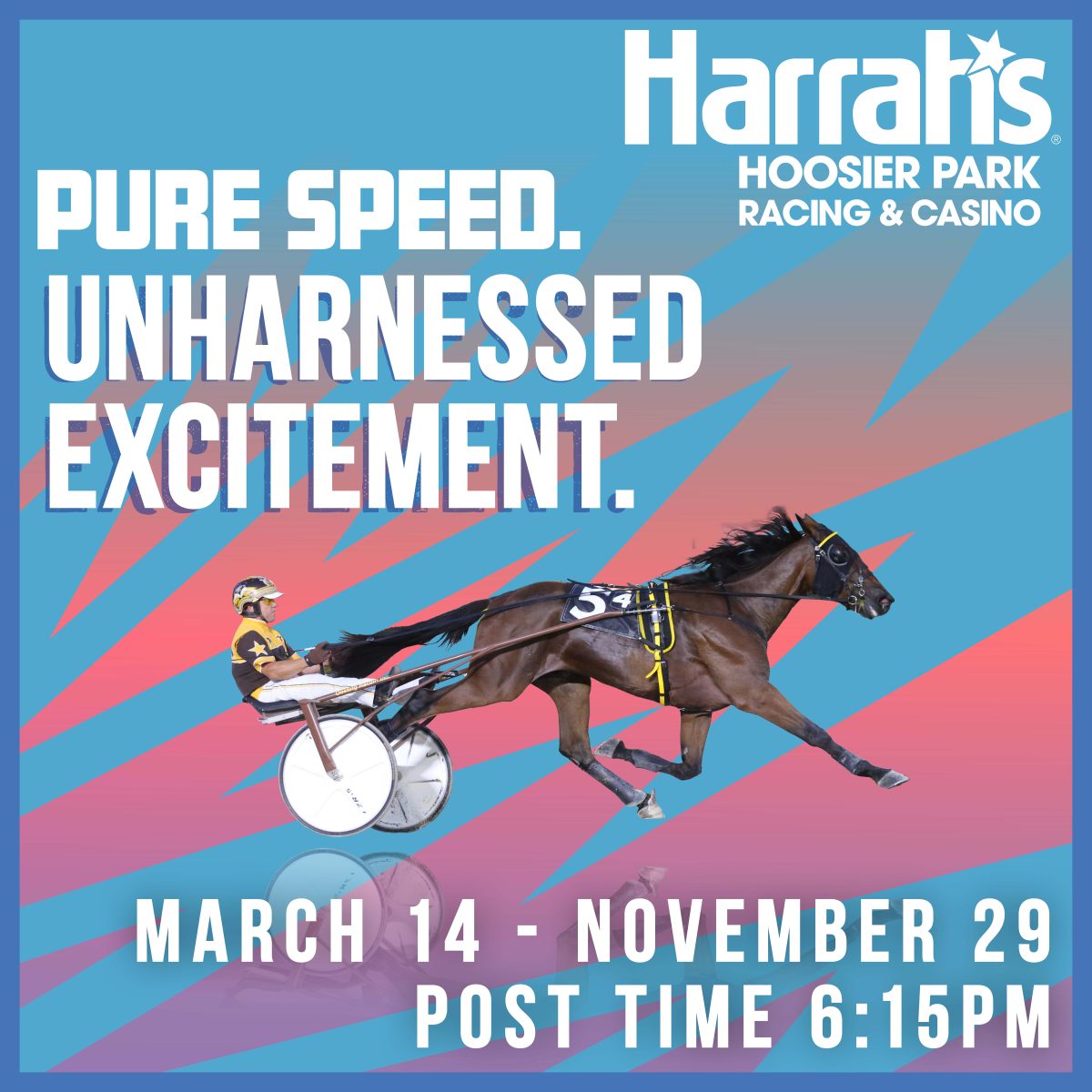Maywood to End Meet Early Amid Troubled Times for Illinois Racing
By Neil Milbert
Illinois has become the Greece of the racing world and a dark cloud of uncertainty hovers over the future of the standardbred sport in the financially devastated state.
The latest in a series of controversial developments with seemingly dire ramifications came Thursday when the Illinois Racing Board by a 5-4 vote granted Maywood Park permission to end its meeting consisting of Thursday and Friday night programs on Oct. 2.
Thus, for the final three months of the year harness racing on the Chicago circuit will be confined to Friday and Saturday nights at Balmoral Park, Maywood’s sister track.
Depending on what happens Sept. 29 when the Racing Board awards 2016 dates the situation could go from very bad to worse for the two tracks that since December have been operating under Chapter 11 bankruptcy protection.
If the thoroughbred and harness schedules proposed by Arlington International Racecourse and Hawthorne Race Course are adopted Maywood and Balmoral will be wiped off the racing map.
Harness racing on the Chicago circuit then would be limited to 61 programs at Hawthorne from May 13-Sept. 11.
“Basically, no matter how next year’s schedule turns out it’s not going to resemble any previous harness schedule and it will likely force every single person who makes a living in Illinois harness racing to move out of the state for at least part of the year,” Illinois Harness Horsemen’s Association President Dave McCaffrey predicted.
Since the late 1960s, Chicago area harness racing has been a sport for all seasons with tracks operating for 11 or 12 months, except in years when the start of the season was delayed by a contract dispute.
In their applications for 2016 Balmoral asked for a Jan. 2-Nov. 3 meeting with racing on Friday and Saturday nights and Maywood requested a Nov. 4-Dec. 31 meeting with racing on the same nights.
This year the board allocated both tracks January through December dates but with a string attached—if the board approved they would be permitted to vacate some of their dates if the Illinois legislature didn’t approve a gaming expansion bill allowing slot machines at the racetracks by the end of June.
With new Governor Bruce Rauner, who is a Republican, and the Democrat-controlled legislature locked in an eight-month power struggle since he took office in January, the state still doesn’t have a budget bill and there has been no discussion of a gaming expansion bill.
By vacating the last three months of the year Maywood President Duke Johnston hopes to conserve money and make the argument at the dates hearings that it and Balmoral will be economically able to conduct racing next year.
This would enable Balmoral and Maywood to continue receiving money from a crucial source of revenue, out of state simulcasts of thoroughbred and standardbred races.
“This is the saddest day of my life,” Johnston said in making his request to vacate the three months, knowing full well that if the Arlington/Hawthorne proposal becomes reality it might mean the death of racing at Maywood, which inaugurated pari-mutuel harness racing in Illinois in 1946 and lured 20,133 fans on Sept. 20, 1980, a record crowd for surviving Illinois standardbred tracks.
For the past four years Arlington and Hawthorne have turned the annual dates hearings into a racing version of an ultimate fighting match but now peaceful co-existence prevails and they’re asking for a schedule that would enable them to split all of the out of state thoroughbred and standardardbred simulcast money.
Hawthorne is seeking a winter/spring thoroughbred meeting from March 11 through April and isn’t contesting Arlington’s request for all of the dark host time simulcast money from Jan. 3 through March 6 as it did in the past.
Arlington wants to hold its traditional summer thoroughbred meeting May 2 through Sept. 25.
Hawthorne’s first harness meeting since 2010 would consist of racing on Friday, Saturday and Sunday nights from May 13 through Dec. 31 and adding Thursday night to the mix in June, July, August and September. There would be an eight-night recess in August during the Illinois State Fairs at Springfield and DuQuoin.
Hawthorne would go back to afternoon thoroughbred racing on Sept. 30 and the meeting would continue through Dec. 26, enabling it to rake in all of the dark host time revenue.
However, if Balmoral and Maywood get any harness dates the simulcast revenue equation would change drastically and it seemingly would make the Arlington/Hawthorne plan economically unfeasible.
The Balmoral/Maywood situation is complicated by the bankruptcy. The tracks that are controlled and owned by the Johnston family were forced into bankruptcy in an attempt to try to cope with a $77.8 million judgement against them that was awarded to four Illinois riverboat casinos.
In court, the casinos successfully argued that now-imprisoned former Governor Rod Blagojevich signed legislation awarding continued impact fee revenue from them to not only Balmoral and Maywood but also to Arlington and Hawthorne in return for a political contribution from former Balmoral president John Johnston.
Ignoring the fact that neither John Johnston nor any members of his family ever made the contribution, a jury voted in favor of the casinos, resulting in the $77.8 million judgement.
Like the casinos, Arlington and Hawthorne have a vested interest in seeing Balmoral and Maywood put out of business. If that happens and a bill eventually passes to allow slot machines at the tracks it might limit participation to those that are operating.
“The problem with the Maywood and Balmoral thing—and I’ve battled this in negotiations for a contract—is there’s a black cloud over the whole process in the form of the bankruptcy,” McCaffrey said. “Even when you make a deal on a contract it has to be approved by the bankruptcy court and the creditors. It’s all very complex.”
The IHHA president said he opposed Johnston’s request to end the Maywood meeting three months early because “horsemen will lose the opportunity to race for $1 million” while, by his calculations, the track “will only save $165,000” during this time frame.
McCaffrey predicted that “because of this ruling, hundreds of horsemen, racetrack employees and state employees will lose their jobs.”
Ironically, the request would have failed to pass if the board had followed past practice. One of the board members, Kathy Byrne, participated in the meeting by telephone because she was taking her son to college for his first year. A majority vote is required for passage and she voted “No” on Maywood’s request, seemingly producing a 5-5 deadlock. However, the Racing Board’s new attorney, Michael Pieczonka, said that Byrne’s vote was invalid because it was cast by phone in violation of the rules.
McCaffrey pointed out that when the Racing Board members and those on the board staff were asked about the rule none could remember it ever being enforced and “could cite many, many examples” of votes being cast via telephone.
The IHHA president has scheduled an open horseman’s meeting for Tuesday to address the increasingly dire
situation.
According to McCaffrey’s statistics, the current split of betting revenue gives 72% to the tracks and 28% to the purse account.
“The purse account used to earn upwards of $30 million on the harness side,” he said. “Now (the actual amount) for calendar year 2013 purses were $7 million.
“Without alternative revenue—it doesn’t have to be a gaming bill; it can be a 3% impact fee or something like that—the harness game will be a shadow of itself.”
The Illinois legislature at two sessions in recent years passed gaming legislation that would have permitted slot machines at the tracks but the bills were vetoed by Rauner’s predecessor, Governor Pat Quinn.
Rauner has indicated that he is willing to consider gaming expansion but since taking office he has been obsessed with trying to smash unions and this has produced a budget impasse pitting him against leaders of the House and Senate.

















